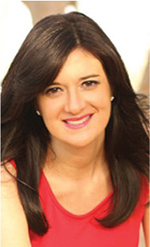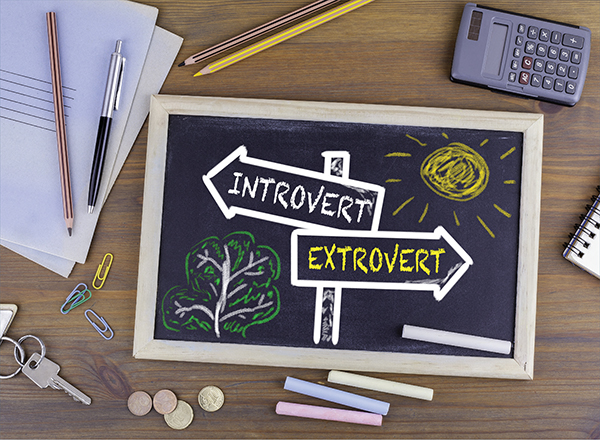
In 2012, I was invited to speak at a credit union in Michiganabout different ways its staff could reach out to millennials andconvince them to become members. At the time, I wrote a column forCU Times, Gen Y Back Talk, so I had researched this topicextensively. Having no public speaking experience, I was hesitantto accept, but decided to go for it. You can't grow if you don'tstep out of your comfort zone, right?
|I spent hours preparing the speech. I was terrified by the ideaof doing this, so I figured the more preparation the better. In thecab on the way to the airport, however, I still asked myself whatthe hell I was thinking.
|I flew from Los Angeles to Cleveland, where I was to catch aconnecting flight to Flint, Mich., take a one-hour cab ride to thetown where the credit union was located, get some sleep at a hotel,and arrive at the credit union at 8 a.m. the next morning for theevent.
|When I landed in Cleveland and glanced at the monitor displayingthe evening's departing flights, all I saw was the word “CANCELED.”Due to bad weather, I wouldn't be going to Flint that night, and noflights were available the next morning that would get me there intime. So, they put me up in an airport hotel and booked me on aflight back to LAX the next day. That was it. Mother Nature had itsown plans, and I would not be giving a speech on millennials.
|I felt terrible about disrupting the credit union's event, but Ialso secretly felt a huge sense of relief that I wouldn't have togo through with the speaking engagement. I thought maybe somedivine intervention had occurred that prevented me from making atotal fool of myself. I decided I wouldn't pursue any more speakingengagements – the benefits of doing one weren't worth the anxiety Iwould no doubt endure.
|Still, I felt guilty about that decision. In American culture,beginning the day we first step foot in a school, we are sent themessage that it's better to be an extrovert. That if you're anintrovert, you better find a way to become more extroverted, oryou'll never succeed in your professional or social life. Inclassrooms, the kids who are too nervous speak up during groupdiscussions are told they need to come out of their shell and“contribute more.” This carries into the workplace too, where atstaff meetings, the person who talks the most usually gets the mostpositive attention, even if their ideas suck. Choosing not to dosomething that an extroverted person could likely do without aproblem felt satisfying, but I still viewed it as a strike againstme.
|I changed my perception entirely after reading the bookQuiet: The Power of Introverts in a World That Can't StopTalking by Susan Cain. The book explores why the leaders ofU.S. schools and businesses are so obsessed with extrovertedbehavior and often make the “quiet ones” feel they are fallingbehind. It makes the argument that introverts are in no way “below”or doomed to be less successful than extroverts; in fact, theircarefully-thought-out communication methods can lead to greatsuccess in their professional lives.
|
Today's workplace culture favors extroverted personalities.Everything is about collaboration and teamwork, and office layoutsforce employees into each other's faces. Many companies embraceopen floor plans, and the square footage of workspace per employeehas dwindled by several hundred square feet since the 1970s,according to Cain's book. Cain calls this workplace trend, alsopopular in schools, the New Groupthink, “a phenomenon that has thepotential to stifle productivity at work and to depriveschoolchildren of the skills they'll need to achieve excellence inan increasingly competitive world.” She added, “It insists thatcreativity and intellectual achievement come from a gregariousplace.”
|A Washington Post writer also argued against office floorplans that rip privacy from employees. In “Google Got it Wrong. TheOpen-Office Trend Is Destroying the Workplace,” Lindsey Kaufmanrevealed that while 70% of U.S. offices have low or no partitions,a study found nearly half of surveyed workers said the lack ofsound privacy was a significant problem, more than 30% complainedabout the lack of visual privacy and those with private officeswere in fact least likely to have an issue communicating with otheremployees. Consider that if you're thinking about making yourcredit union's headquarters look more like Facebook's.
|Kaufman noted that if an open floor plan is still a go, it'simportant to include private spaces and lay down some rules in theopen space (for example, if a worker has headphones on, send theman email instead of interrupting them). Working from home should bepermitted as an option, too, she said.
|Since too much human interaction can be draining for introverts,leaving them with less energy to produce good work, they're likelyto loathe open floor plans. Regular communication with colleaguesis important, but they also need quiet, private time to think,analyze and create. I know this because after a day packed withmeetings, phone calls and in-person interruptions at my cubicle inan office setting, I am wiped and not likely to have gottenany real work done, whereas working from home allows me to be moreproductive than ever.
|Credit union managers will work above all types ofpersonalities, including many introverts. In addition to frowningupon the open-office trend, there are things they can do to helpthem shine, according to Cain's book. First, ask them to come upwith creative ideas alone before presenting them to a group.Second, arrange for people to interact one-on-one and in smallgroups. Third, don't assume that just because someone is assertiveand eloquent, their ideas are genius.
|Finally, encourage employees to explore their passions. One ofthe key takeaways I got from Cain's book is that when introvertsimmerse themselves in an activity or topic they love, they have thepower to exhibit extrovert-like qualities. Perhaps if my creditunion talk had been on wine, not millennials, my nerves wouldn'thave gotten the best of me and the skies would have been clear inMichigan that day.
Complete your profile to continue reading and get FREE access to CUTimes.com, part of your ALM digital membership.
Your access to unlimited CUTimes.com content isn’t changing.
Once you are an ALM digital member, you’ll receive:
- Critical CUTimes.com information including comprehensive product and service provider listings via the Marketplace Directory, CU Careers, resources from industry leaders, webcasts, and breaking news, analysis and more with our informative Newsletters.
- Exclusive discounts on ALM and CU Times events.
- Access to other award-winning ALM websites including Law.com and GlobeSt.com.
Already have an account? Sign In
© 2024 ALM Global, LLC, All Rights Reserved. Request academic re-use from www.copyright.com. All other uses, submit a request to [email protected]. For more information visit Asset & Logo Licensing.









